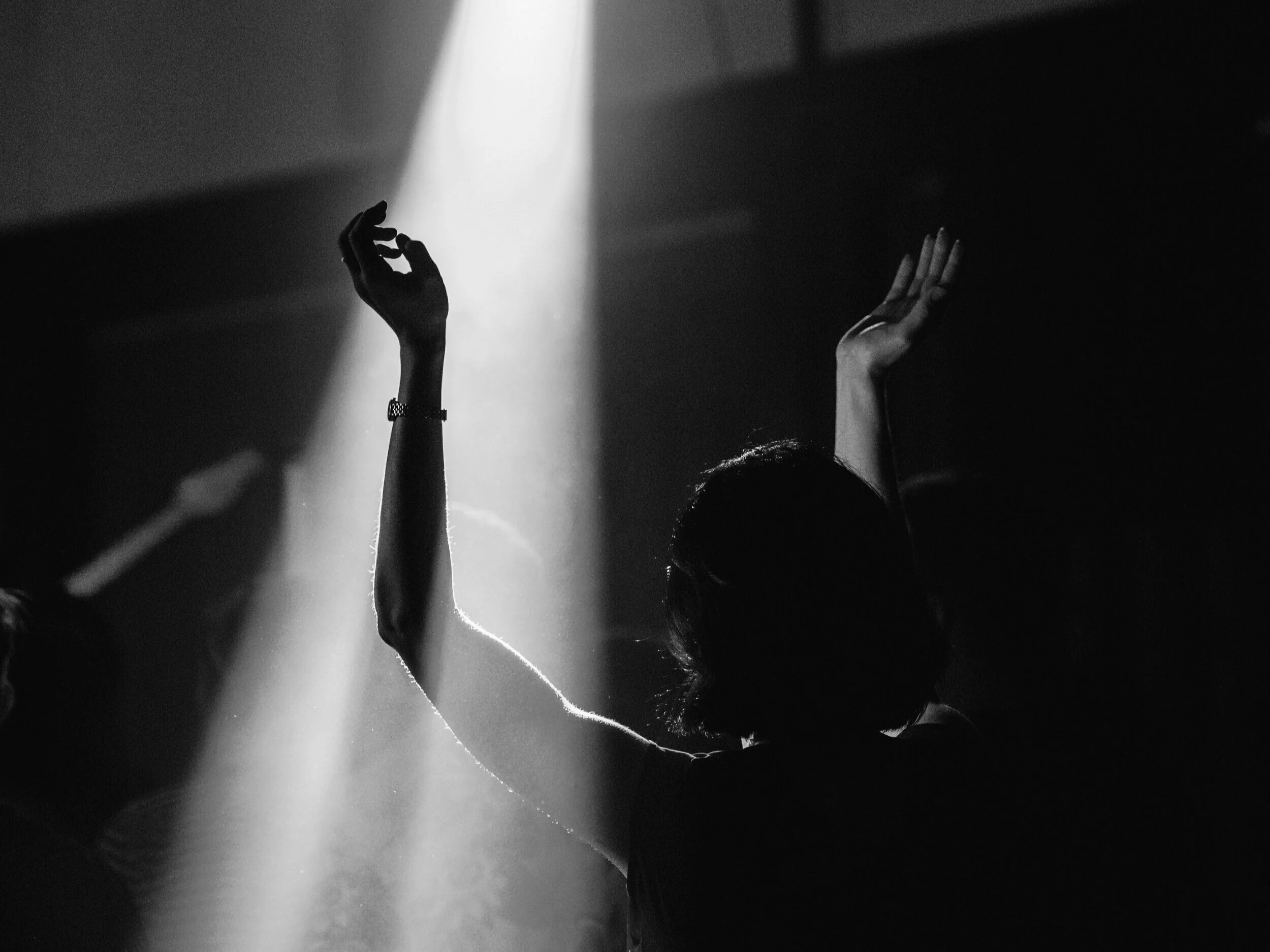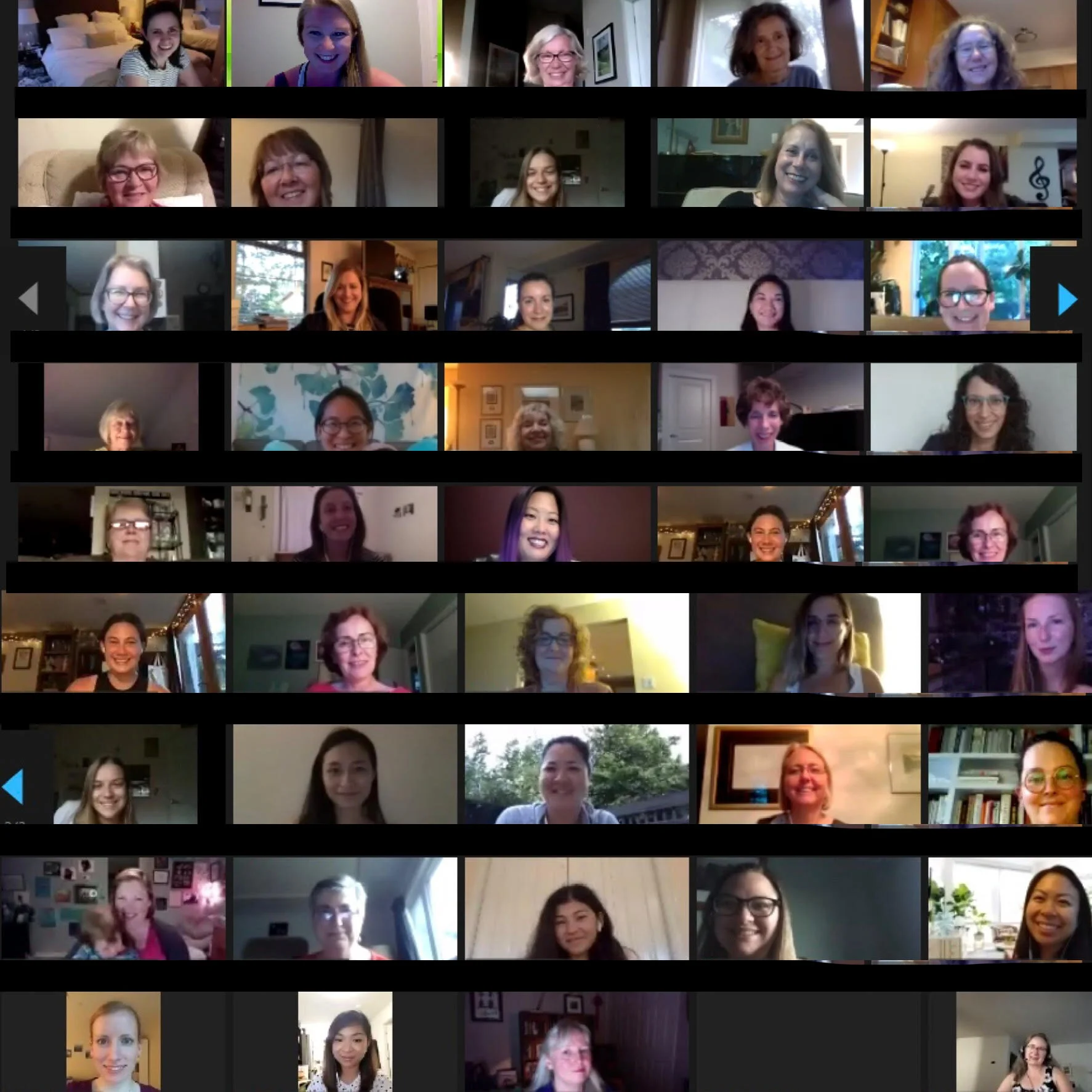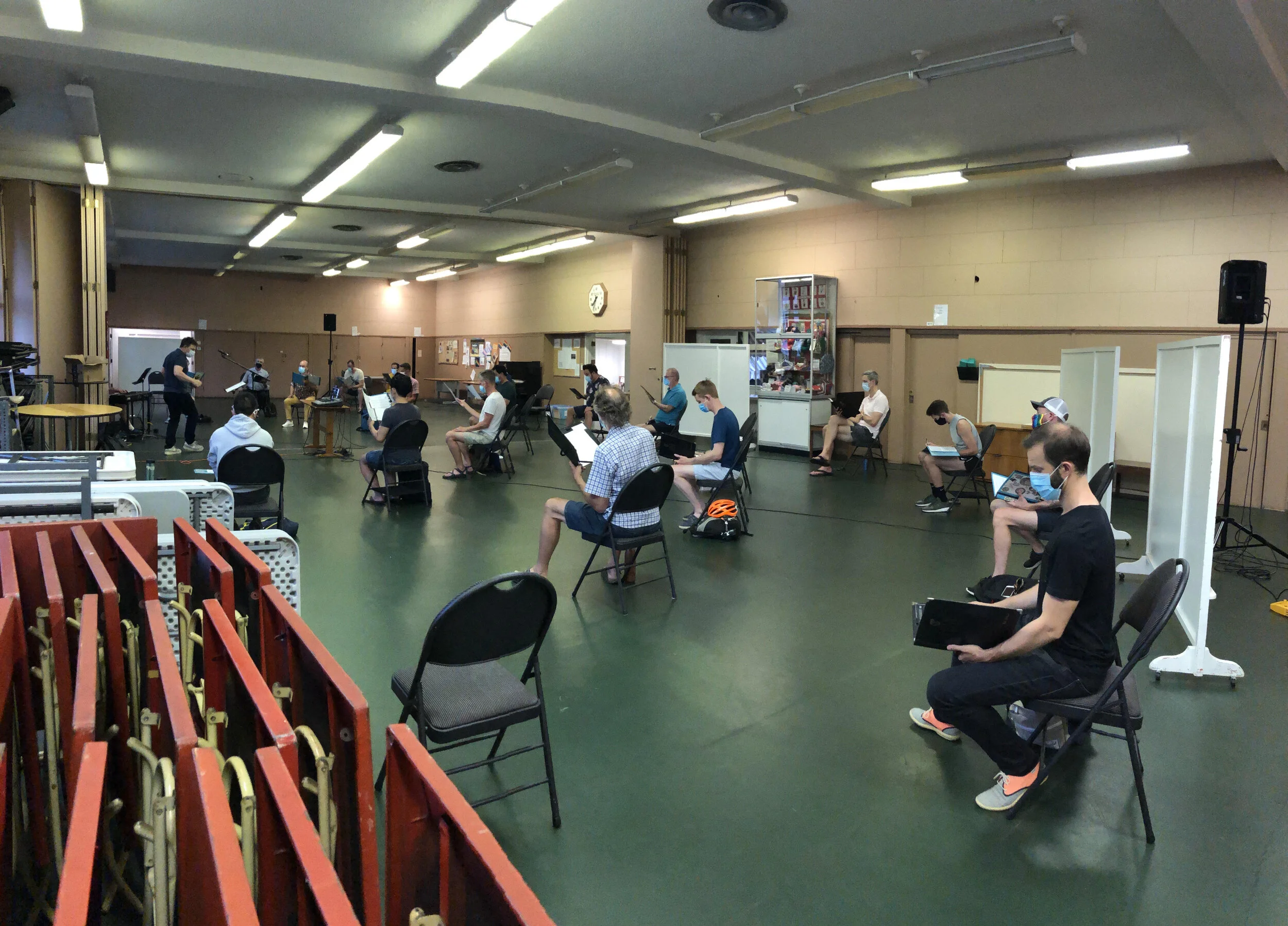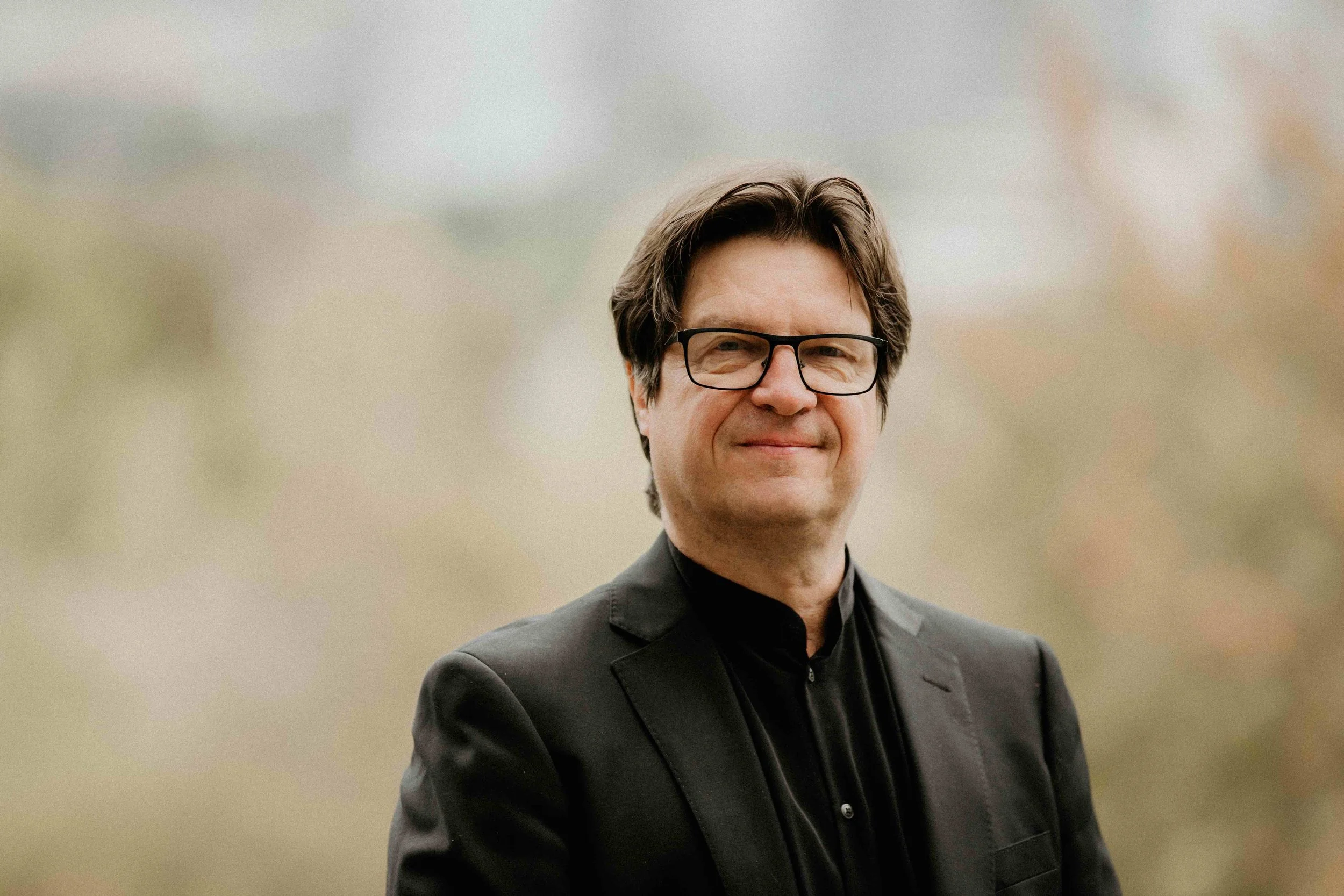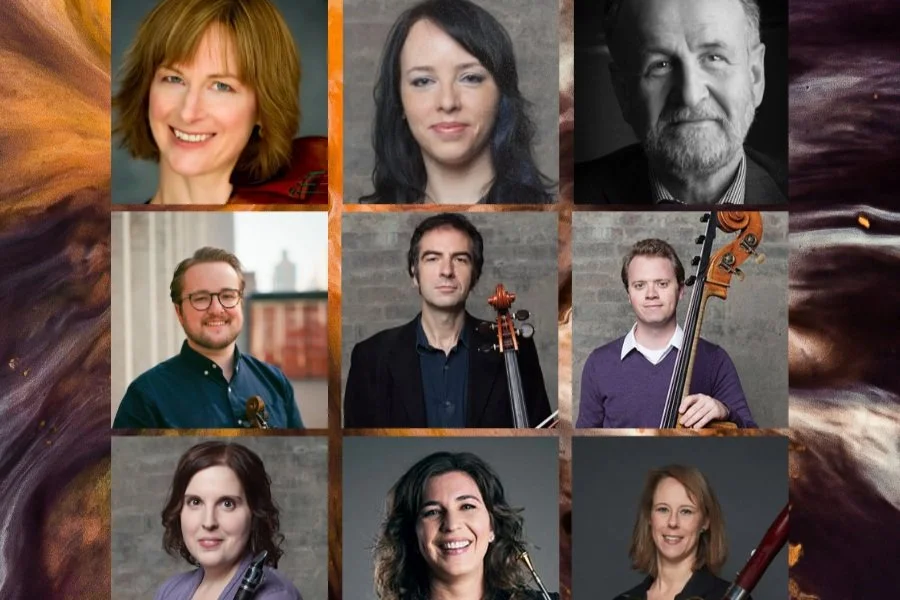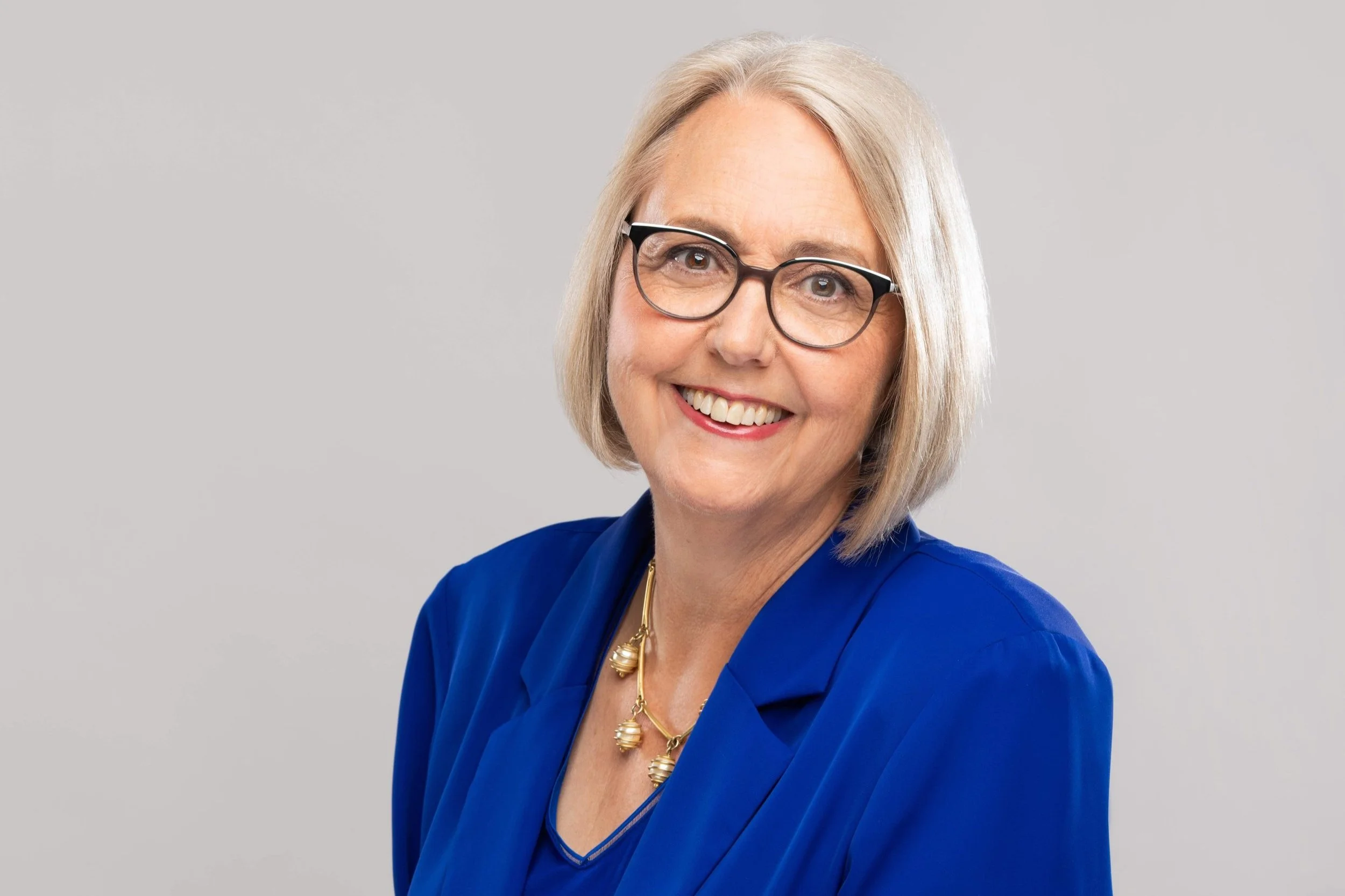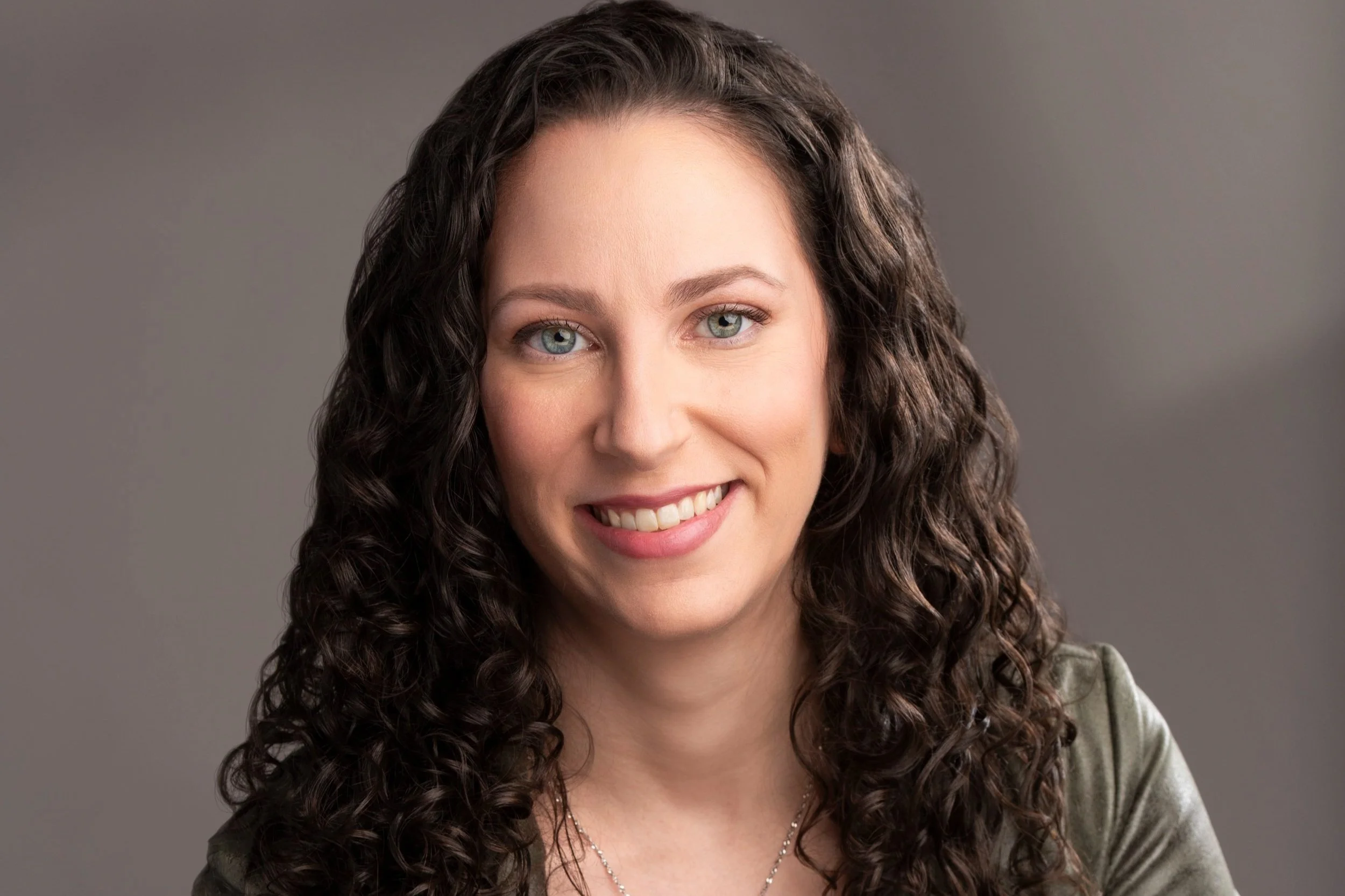With COVID-19 ongoing, choral singers try to find their voice
Some Vancouver choirs are carefully resuming in-person rehearsals, learning how to sing together safely
Photo by Joshua Hanson
FOR BRUCE HOFFMAN, the choirs he sings in are so much more than musical groups; they’re family. The Vancouver tenor has been singing for decades, formerly with the Cantata Singers and the West Vancouver United Church. Now, he splits his time as a member of Chor Leoni Men’s Choir and section leader with Christ Church Cathedral Choir. And so when COVID-19 led to the cancellation of concerts and suspension of in-person rehearsals in March, Hoffman was at a loss for words, literally.
“It was like this huge void opened up in my life,” Hoffman says. “At first I thought ‘Okay, I’ve sung a lot of solo music and I have a big library of solo songs I can sing through.’ I tried. But I couldn’t even sing. I was grieving. So many of us went through a collective grieving process that was really visceral and really hard.
“I think anybody who sings in a choir thinks that their family has expanded,” he says. “You’re breathing together, you’re creating art together, and that’s a very special and unique experience. Every time you sing, you’re accessing something that is bigger than you are. Whether you’re singing a religious piece or a new piece by R. Murray Schafer, you are in a way letting yourself sink into that beauty you’re creating, and it really does lift you up.”
Pre-COVID-19, singing at the top of your lungs would have never been considered a risky activity. With the onset of the global pandemic, however, collective singing went from being an act of jubilation and bonding to a potential source of exposure and illness. Several countries, including Britain, Germany, the United States, South Korea, the Czech Republic, and the Netherlands, have reported outbreaks linked to choirs.
The primary route of transmission of the novel coronavirus (the virus that causes COVID-19) is the release of large respiratory droplets. Although British scientists have found that singing poses no greater risk of spreading the virus than talking if done at the same, conversational-level volume, “the forceful exhalations associated with loud singing can result in greater numbers of particles being released”, according to the B.C. Centre for Disease Control. Therein lies part of the problem: it can be hard to keep your voice down when the song on the sheet in front of you is meant to reach the heavens.
“When a singer is singing properly and expelling all that breath, we send our droplets farther than anybody else,” says Denise O’Brien, charter member of Elektra Women’s Choir, who joined the group in 1987, and a former high-school music teacher. “The American Choral Directors Association was looking at research into this—and they were saying, essentially, singing is quite risky.
“We had a performance during the first week of March…then the doors slammed shut on everything,” she says. “I identify as a singer; that’s what I do. So all of a sudden, I was still a singer but I couldn’t sing. It’s like being a writer and there’s no such thing as pen and ink.”
Like groups around the world, choirs such as Chor Leoni pivoted swiftly in response to lockdowns, streaming videos of past performances online. (These would become a series called Chor Leoni Inside, airing on Facebook and YouTube every other Tuesday, with videos of concerts and tours as well as interviews with luminaries from the choral world.) Choristers began connecting with each other and rehearsing virtually, despite so many technical challenges. (O’Brien says Zoom has a terrible lag that makes online group practices an exercise in frustration.) More recently, some local singers have met in parks and other outdoor places, keeping at least six feet apart.
Elektra Women’s Choir has been rehearsing via Zoom since COVID-19 “slammed the doors shut on everything”.
Now, with B.C. in Phase 3 of its Restart Plan, some choral organizations are cautiously moving forward with modified in-person and indoor rehearsals, learning how to gather safely in song.
The BC CDC notes that the risk of COVID-19 transmission goes up when people sing together in large groups; in spaces that don’t allow for adequate physical distancing; in indoor venues with poor ventilation; and when microphones, music stands or binders are shared.
The organization has outlined several recommendations specifically for choirs that extend beyond the general public-health guidelines of physical distancing, frequent hand-washing, and contact tracing.
Singing outdoors is best; if indoors, it should be in a large space with good ventilation. Choirs are advised to avoid sharing equipment or, if that’s unavoidable, to clean and disinfect items between users. Choirs are to reduce the duration of indoor singing and to take breaks during rehearsals to ventilate rooms.
“The longer the duration of a practice where people are in close proximity, the greater the chance of transmission,” the BC CDC’s website says.
Members of Chor Leoni Men’s Choir must wear masks while rehearsing amid new public-health guidelines. Photo courtesy Bruce Hoffman.
Chor Leoni is continuing with Chor Leoni Inside this fall (with the September 29 episode featuring Grant Gershon of the Los Angeles Master Chorale and a discussion of Eric Whitacre’s just-released 12-movement work The Sacred Veil). It also recently began holding modified live rehearsals. Half of the choir rehearses simultaneously in two separate rooms: one group is with artistic director Erick Lichte; the other participates virtually. A member has donated the use of a hospital-grade HEPA air scrubber that runs throughout the practice, and midway through, the two cohorts swap spots. Singers can only arrive 10 minutes prior to start time and must leave immediately once it’s over; socializing is out. Anyone who’s not able join in person will be able to participate online. At the subsequent session, the other half of the choir takes part.
Those who do partake in in-person rehearsals must don a face mask, a new reality that presents unique challenges for singers.
“When you’re singing, you’re trying to drop your jaw to make your sound cavity as large as possible; it’s going to be a bit of a challenge,” Hoffman says. “It will take some time to learn what this does to the sound—how we perceive it as a singer, how it resonates in my head, and how it’s actually heard in the hall. There are a lot of unknowns here.
“It’s a learning experience,” he says. “But I’m really excited that we’re actually doing this. I need to be learning sign language for ‘hug’. There’s very much a feeling that I’m getting to see a chunk of my family again.”
Despite the difficulties the pandemic has brought on for choirs, there have been positives, too. For Sabrielle McCurdy-Foreman, a member of the Universal Gospel Choir, the group’s use of technology provided singers with a new perspective, in a literal sense. The choir presented a virtual solstice performance using video footage from previous events that had never before been released.
“It was amazing,” McCurdy-Foreman says. “A lot of our choir members never get the chance to sit back and watch themselves; we usually watch the soloists from behind. It’s a completely different experience for us watching a 90-person choir. We will absolutely do that again.”
The choir is looking at other possibilities, possibly recording a few members singing together at a time then adding others in via green screen effects, to simulate a full chorus for an online performance. “There are a lot of challenges but there are a lot of creative juices flowing, people coming up with creative ways to do things,” she says.
What’s more, McCurdy-Foreman has been struck by the way choir members have supported each other amid these stressful days. The organization launched an anonymous “Choir Love” campaign, for instance, to help those who may be struggling financially as a result of COVID-19.
“Something that has been really touching is how the community has really come together to keep it alive,” says McCurdy-Foreman, who also sings in a church choir and teaches music to toddlers. “If there’s anything that’s been made really clear to me during this time is how crucial this kind of work is in a lot of people’s lives. It’s such an open and loving, supportive environment.
“I think there’s something about that experience of collective signing; it’s a feeling you can’t get anywhere else,” she says. “I love the feeling of that connected energy and how in sync you have to be and how present in the moment you have to be.”
Universal Gospel Choir, pre-Covid
O’Brien feels a similar sense of community with Elektra, which recently launched physically distanced rehearsals consisting of small groups combined with virtual attendance. Those participating in person wear masks designed specifically for singers that she says somewhat resemble duck bills: they protrude from the lips and have a long neck for maximum jaw movement. The group has a virtual concert scheduled for December. It will comprise a suite of 19 movements and poetic readings on the subject of the nativity, a recorded pre-pandemic collaboration with California’s WomenSing choir.
“There’s something about women supporting women, there’s that kind of emotionally supportive thing if we burst into tears over a piece of music or a situation going on in our lives,” O’Brien says. “The biggest difficulty for singers now is the unknown: when will we get out of this?”
It’s a question everyone is asking. And while rehearsals with COVID-19 protocols are allowing singers to make the most of trying circumstances, Hoffman notes that many choristers may be finding this fall to be especially hard.
“Normally at this time of year, every choir in North America would be starting up for in-person rehearsals,” Hoffman says. “If they don’t have something set up or planned, they’re going to be hurting. Anybody who knows a choral singer might want to reach out to them to say you’re thinking about them.”



